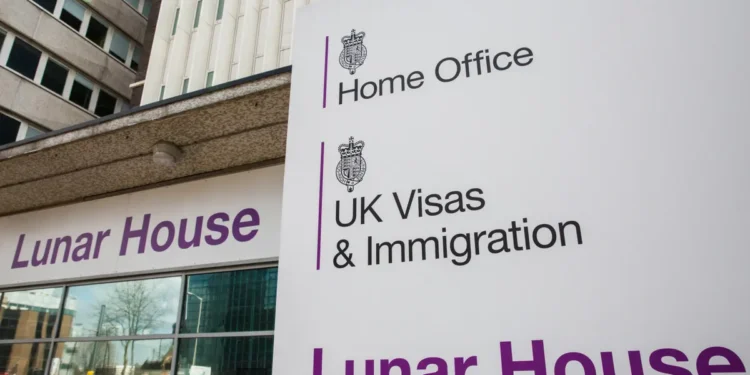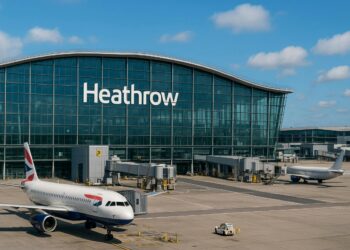The UK Labour government has unveiled a sweeping reform of its immigration system, prompting intense debate and uncertainty, particularly among Nigerian migrants and those planning to relocate. Published as a comprehensive White Paper, the reform package outlines a major overhaul that the UK government claims is aimed at restoring “order, control, and fairness” to the immigration system, reducing net migration, and promoting economic growth.
According to the British High Commission in Nigeria, while the full implementation timeline remains pending, the Commission has assured Nigerians of ongoing collaboration with Nigerian authorities. In a public statement, the High Commission emphasized the “strong and enduring” ties between both nations and pledged to engage relevant partners in Nigeria once the policy rollout begins.
Key Changes That Will Affect Nigerians
The reforms, presented in an 82-page White Paper, contain several major shifts that will impact current and prospective migrants from Nigeria:
✦ End of Social Care Visa Route
One of the most controversial changes is the UK government’s decision to abolish the social care visa route entirely. According to the UK Home Office, this route will be scrapped gradually, with a transitional period lasting until 2028 to allow for visa extensions and changes.
This development hits close to home for many Nigerian migrants, a significant portion of whom have historically entered the UK through social care positions. The change could mean fewer opportunities for new entrants and visa complications for those already in the system.
✦ Reduction in Graduate Post-Study Visa Period
Graduates from UK universities—many of them Nigerian students—will now face a reduced window to remain in the UK after completing their studies. The current two to three-year post-study visa period will be shortened to just 18 months. This modification could impact the decisions of prospective Nigerian students considering the UK for higher education.
✦ Higher Salary Thresholds for Skilled Workers
The reforms also target the Skilled Worker visa by raising the minimum salary requirement and eliminating discounts previously available under the Shortage Occupation List. Only occupations deemed as having long-term shortages will remain eligible for foreign recruitment, subject to workforce development strategies.
For Nigerians aiming to migrate through employment routes, these stricter thresholds may narrow the eligibility pool and place greater pressure on acquiring highly specialized skills.
✦ English Language Tests for Dependents
Another notable shift is the new English language requirement for visa dependents. The government will now require both applicants and their dependents to pass language proficiency tests, with continued assessments to measure improvements over time. This policy aims to encourage better integration but poses additional hurdles for families seeking to settle together in the UK.
✦ Settlement Eligibility Doubles
The pathway to obtaining settled status in the UK has also been extended. Migrants will now need to live in the country for ten years instead of the current five before becoming eligible.
✦ Increased Scrutiny and Deportation Thresholds
The UK government also announced closer scrutiny of asylum claims and criminal records. Foreign nationals, including Nigerians, who commit crimes may now face deportation under expanded criteria. A proposal has been made to notify the Home Office of all criminal offences, not just those resulting in imprisonment.
Political Climate Driving the Reforms
Prime Minister Keir Starmer emphasized that rising immigration has caused “incalculable damage” to the UK economically and politically, blaming previous administrations for a lack of control. The Labour government sees this immigration overhaul as a way to curb net migration and win back public trust.
Home Secretary Yvette Cooper supported the reforms, asserting that they could reduce annual migration numbers by up to 50,000. She further advocated for investing in domestic workforce development to minimize dependency on international labour.
However, critics, including economists and education sector stakeholders, warn that these changes could backfire. The healthcare sector, which relies heavily on international staff, may face staffing shortages. Moreover, reducing post-study work opportunities could make the UK less attractive to international students.
Nigeria’s Diplomatic Response
Despite the potentially negative implications, the British High Commission has been keen to maintain a reassuring tone. The UK, it noted, remains a top destination for Nigerians to study, work, and settle. The Commission reaffirmed its intent to remain a partner to Nigeria and highlighted the positive contributions of Nigerians to British society.
In Nigeria, policymakers and education consultants have called for urgent dialogue between both nations to ensure the new rules do not unfairly disadvantage Nigerian nationals. There is a growing consensus that the Nigerian government should play a proactive role in engaging the UK to protect the interests of its citizens.
Final Thoughts: Preparing for the Future
As the UK moves forward with implementing these reforms, Nigerian migrants must remain informed and prepared. Here are some key takeaways:
- Nigerians currently in the UK should seek legal guidance on how these reforms may affect their immigration status.
- Prospective migrants should reassess their plans, particularly those pursuing social care roles or depending on the graduate route.
- Families must prepare for additional requirements such as English tests for dependents.
The British government’s new immigration approach signals a tougher environment for migrants but also highlights the need for strategic planning. Nigerians looking to relocate to the UK must now meet higher thresholds and navigate a more complex immigration landscape.
For regular updates and official guidance, subscribe to Clariform newsletter and Youtube channel.












